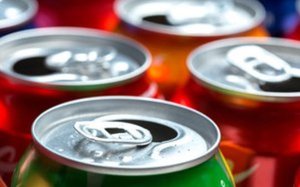
Although the
big soda companies have had their share of losses on the “soda tax” front in recent times — including in Philadelphia, San Francisco, Seattle, Boulder and Oakland — they scored
a major win on Wednesday (Oct. 11) in Illinois.
The Cook County Board of Commissioners voted 15-2 to repeal a one-cent-per-ounce tax on sweetened beverages that had been in effect for
just two months, since Aug. 2. The tax will be repealed as of Dec. 1 this year.
The tax has generated legal actions, as well as heated controversy, in the Chicagoland
region since the board voted to implement that tax last November. In Cook County’s case, the dominant argument by tax proponents was the need to raise revenue, while in other cities,
advocates have succeeded in getting taxes passed by arguing that significant improvements in health and decreases in health care costs could be realized, in addition to the tax revenue
generated.
advertisement
advertisement
As with the other soda tax battles in a growing number of small and larger cities in the past few years, while the battle in Cook County “was
ostensibly fought by state and country groups, it's well-acknowledged on both sides that local soda tax skirmishes are essentially proxy wars between the national soda industry and
well-monied public health groups,” points out the Chicago
Tribune.
“In Cook County, the Can the Tax Coalition, an anti-tax group funded by the American Beverage Association, has spent more than $3.2 million on TV and
radio ads,” the newspaper reports. “Repeal advocates have paid constituents of target districts $11 per hour to circulate anti-tax petitions. They have also targeted and lobbied individual
commissioners, all of whom are up for election next year… Michael Bloomberg, meanwhile — the former New York City mayor who has made the soda tax battle his own — is said to have
spent more than $10 million on radio and ad campaigns, and an unknown amount on lobbyists and mailers. Bloomberg has verbally committed to backing commissioners who supported their cause in next
year's elections…”
And as the Tribune and other media have stressed, the big question now is whether the Cook County tax scenario
will prove to be a setback, or a sign that soda taxes’ momentum is going to fizzle going forward.
In an opinion piece, the Chicago
Sun-Times’s Lynn Sweet cites multiple instances of soda tax proposals
failing to make progress in some states and municipalities, or, as in Santa Fe this past May, being voted down.
“The results have been shifting as local
municipalities, residents and businesses learn more about the devastating impact these taxes have on working families and businesses, and how they aren't good budget solutions,” David
Goldenberg, a spokesman for the industry-funded Can the Tax Coalition, asserted to the Tribune.
“But it's probably too early for Big Soda to
gloat, experts caution,” the Tribune adds. “An analysis of the political and demographic climates in cities that successfully passed soda taxes, published
in the journal Food Policy this year, concluded that as many as 40% of Americans live in cities with the right conditions to pass their own taxes.”
And Bloomberg and public
health advocate groups, including the Center for Science in the Public Interest, have vowed to keep on fighting for the taxes.
In short, it’s safe to say that the soda
tax wars are far from over.